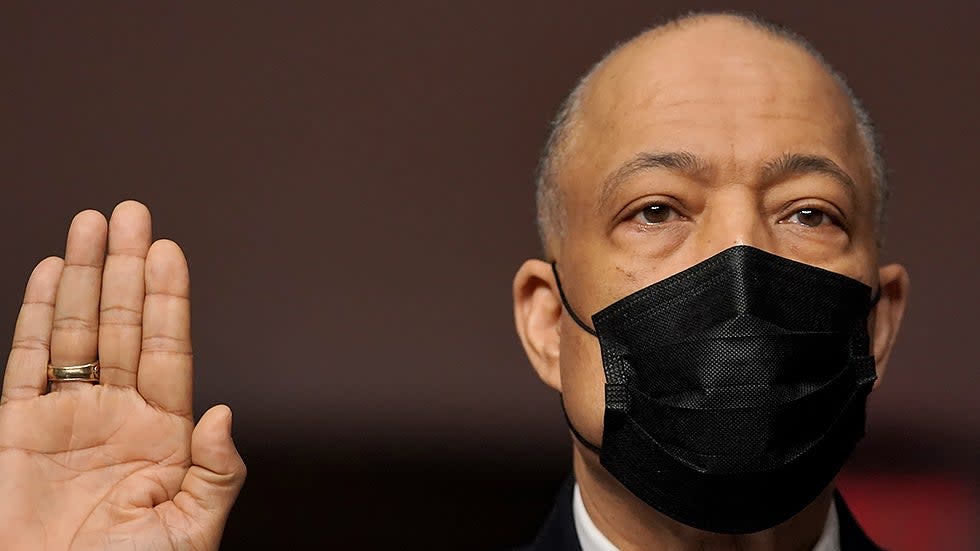Capitol security officials developing program to identify 'insider threats' from police

Capitol Police Chief Thomas Manger and House Sergeant-at-Arms William Walker on Tuesday told lawmakers they are actively working to root out police officers with extremist views who could pose "insider threats" to Capitol security.
Walker said during a hearing before members of the House Appropriations Committee that his office has developed an "insider threat awareness program" to identify "insider threats and employees who do lose their compass" at a time when lawmakers face record levels of security threats.
The proposed insider threat detection program will be presented to the Capitol Police Board, which oversees the department, as soon as this month, he said.
"The strategic objective is to have police officers trained as insider threat specialists so we can recognize the signs and symptoms, the indicators, of someone whose allegiance has changed," Walker said.
Manger further said that "it all begins with the hiring process" with background investigations, polygraphs and reviews of applicants' social media posts.
The efforts to identify police officers with extremist views come after the Capitol Police investigated dozens of officers accused of assisting rioters during the Jan. 6, 2021, attack on the Capitol. Manger estimated that there were at least 30 complaints against Capitol Police officers.
The alleged misconduct ranged from one officer who took a selfie with a rioter to another who wore a "Make America Great Again" hat and gave directions to the people who broke into the Capitol.
Walker further called for boosting resources for lawmaker security, including hiring two law enforcement coordinators per House district to help mitigate threats to lawmakers and their families and providing funds to enhance lawmakers' home security with equipment like motion sensors and video doorbells.
"We need to understand where our members live and what level of protection they need to be afforded. So we do need to throw funding at protecting members," Walker said.
The Federal Election Commission issued an advisory opinion after the 2017 shooting targeting a group of GOP lawmakers practicing baseball that members of Congress can use campaign funds for home security systems.
The House passed an emergency Capitol security funding bill in May that included funding for the House sergeant-at-arms to install security systems in members' district offices. But that funding was not included in the final version that cleared both the House and Senate in late July.
Rep. Tim Ryan (D-Ohio), the chairman of the House Appropriations subcommittee overseeing legislative branch funding, questioned the current system of lawmakers turning to campaign funds to pay for home security to protect themselves and their families instead of official resources.
"I don't think people are out there sending us 10 bucks or 15 bucks or 20 bucks for our reelection that really would want us to use that money for home security systems. These threats are because of our official capacity, the official duties that we hold," Ryan said.


